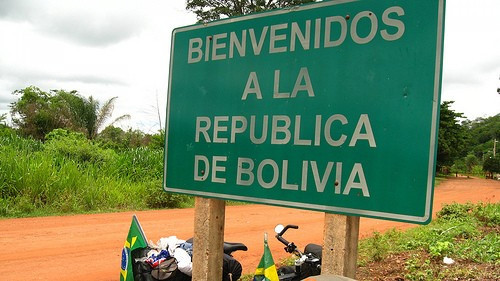Mob Justice In Bolivia: Two Brazilian Murder Suspects Burned Alive

A mob of 400 angry Bolivian civilians dragged two Brazilian men from a local prison, and burnt them alive in the street after beating them.
The lynching occurred in San Matias, a town of 15,000 people near the border between Bolivia and Brazil, where drug traffickers and car thieves from both countries are active. Police say the town has become a refuge for Brazilian criminals, and violence is common in the area.
Having little faith in the justice system and tired of criminal activity in the region, local residents decided to take matters into their own hands and lynch those who they view as threatening peace in the community.
"It's barbarous what occurred Tuesday night, but people are tired of so much insecurity. No one is in charge of this town, where criminals do whatever they please," town councilman Claudio Rojas told Associated Press.
The two Brazilian young men who were killed, Rafael Max Dias and Jefferson Castro Lima, were jailed at a local prison after allegedly murdering three Bolivians and wounding two others in a drunken dispute on Tuesday. One of the Brazilians had previously escaped from a Bolivian prison.
The seven police officers who were responsible for keeping the Brazilians under custody were overwhelmed by the angry mob, and couldn't control the situation even after firing shots into the air.
Brazil's foreign ministry has voiced its deep concern for the situation, and instructed its embassy in La Paz to both express its repudiation of the vigilante justice and to call on Bolivian authorities to adopt measures to prevent a recurrence of such an incident.
Lynchings are not uncommon in rural areas of Bolivia, where police and judicial workers are scarce. It is considered the last resort for people to defend themselves against rampant crime and violence.
An investigative journalist, Carlos Valverde, chronicled 16 such killings in 2009 and 13 in the first half of 2010, including the kidnapping, torture and murder of four policemen, according to The Economist.
In the past, there have been cases in which innocent people were injured by angry mobs, who wanted nothing more than to deliver swift justice, as noted by BBC.
Yet, while Bolivia's new constitution (approved in 2009) has legalized "traditional justice" dispensed by village elders, the Bolivian legislative assembly did pass a law in 2010 clarifying statutes that strictly forbid lynching or any form of the death penalty.
Bolivia's regional police commander, Col. Lily Cortez, vowed to arrest and prosecute those responsible.
© Copyright IBTimes 2024. All rights reserved.




















